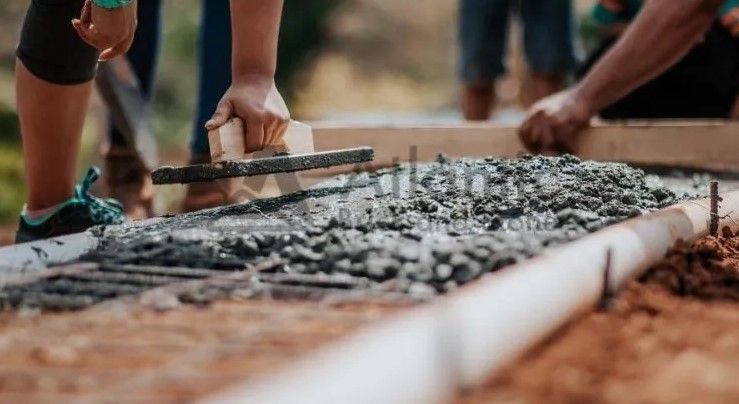Foundations are the bedrock of any home, providing stability and strength to its structure. Knowing which type of foundation is right for your home can be daunting, as there are a variety of popular foundation types on the market. In this article we will uncover three of the most commonly used foundations and discuss their advantages and disadvantages. Homeowners need to be aware of their options when it comes to selecting the right foundation for their property.

A house foundation is a crucial part of any home building project. It provides the base structure that supports the entire weight of the house, ensuring its stability and safe operation for years to come. Knowing what a house foundation is, how it works and its importance are key considerations when building or renovating your home.
The term ‘foundation’ can refer to many different materials used as a base for construction including concrete, stone or brickwork. A well-built foundation will have footings which are typically wider than the walls to provide extra stability, allowing it to spread out any load evenly across the ground beneath it. The type of soil around your house plays an important role in determining the best type of foundation for your property; soil with higher clay content might require deeper footing while sandy soils need extra reinforcement due to their tendency to shift over time.
There are 3 most common types of foundations used to build home. Those are:
Concrete slab foundations are a type of foundation that require little preparation and are easy to work with when constructing a building or home. This foundation is an economical choice as it requires minimal materials and labour, making it one of the most cost-effective methods available today.
Slab-on-grade foundations involve pouring concrete directly onto the ground, which helps provide structural support for the building. This type of foundation does not require deep excavation like other types of foundations. The slab is reinforced with steel mesh or rebar, then covered with several layers of concrete before being left to cure for several days before construction can begin on top.
Concrete slab is low-cost option also has many benefits, including increased energy efficiency since there is less space between the ground and the house for cold air infiltration in winter months. Here are some pros and cons of slab foundation.
Pros:
Cons:
Crawl space foundations are a type of residential masonry most commonly used for basements. These structures are typically built a few feet above ground level and feature crawl spaces beneath the main floor of the home. This type of foundation provides an efficient way to support a structure without requiring any excavation or digging below ground level.
Crawl space foundations are often constructed out of masonry or concrete blocks, as they offer superior strength and durability compared to other materials like wood. Not only do these materials provide long-term stability, but they also help protect the home from intruders, moisture damage and pests like termites. Additionally, crawl space foundations can be easier to access for foundation repairs than full basement since the area is above ground level.
Pros:
Cons:
Basement foundations are an essential part of any home. They provide the foundational structure and support for the rest of the house. When building a basement foundation, a hole is typically dug eight feet deep that ends in a concrete slab. The walls are then constructed using either poured concrete or cinder block. Once completed, these basement foundations can be used to store goods and materials, create additional living space, or even offer protection during extreme weather conditions.
Basements are typically either monolithic or post-and-beam foundations. Monolithic foundations involve digging an eight-foot hole and pouring a continuous concrete slab at the bottom, along with footings around its perimeter; this supports all walls in one go. Post-and-beam foundations require extra time, skill, and materials since each wall has to be built separately on its own footing; however, these offer more support for higher load bearing walls like those found in large commercial buildings or other structures with significant weight bearing requirements.
Pros:
Cons:
In order to determine which foundation type is best suited for a proposed residential structure in Fredericton, one must consider the area’s local geology, hydrology, and climate conditions. A thorough understanding of subsurface stratigraphy and bearing capacity can inform the selection of an appropriate foundation type.
If you are planning on constructing a residential structure and require the services of an experienced concrete foundation contractor, then Atlantic Brick and Stone is an ideal choice. Utilizing our expertise in the field, we can provide top-tier service to help make sure your project is completed in a timely and efficient manner. Our knowledge of building codes and regulations ensures that all masonry work will be carried out in accordance with relevant standards. Contact us today and get a free estimate on all your residential or industrial masonry projects.
GET STARTED
Create stunning structures with our residential and commercial masonry services in Fredericton. From meticulous designs to the completed build, our process is professional and rewarding, and we can’t wait to build your dream with you.
Atlantic Brick and Stone, one of the best masonry contractors in Fredericton, NB
Contact
8 Muskie Street, Lower Kingsclear, New Brunswick E3E 0E7, Canada